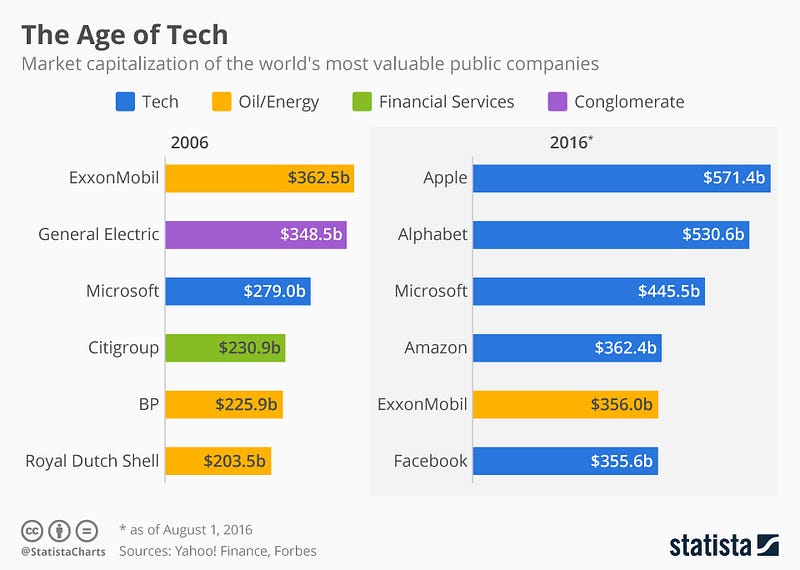Who Is Behind The Curtain?

“Pay no attention to that man behind the curtain!” Oz commanded Dorothy, attempting to thwart her and her companions’ eventual discovery: that the great and powerful Oz was really a diminutive man behind a veil. Today, we have many corporations masquerading behind the veil of useful technologies, all the while deviously collecting and auctioning off a digital “you”. Perhaps you’re thinking about deactivating your Facebook, maybe even shuttering your Instagram. The reach of this new Oz is more than we could even imagine and yet no one seems to be particularly responsible. We have to ask: who is behind the curtain?
What are they doing?
This is not the first time that we have seen a glimpse of what these companies know about us. Look no further than the infamous Facebook Beacon incident. Facebook, taking the reins on our digital selves, decided for us that we want everyone to know about every purchase we made on third party websites through our Facebook news feeds. One can imagine where this went.
We are in an unprecedented time where Non- Government Organizations (NGOs) have such detailed information on the general population, without us knowing anything about them. In governments, we have sets of laws and regulations that we all must obey and legislators who must answer to constituents. However, when working in a digital space, it becomes harder to determine who is in control of what information and where responsibility lies when things go awry.
Facebook has been dragged through the news enough recently. With Mark Zuckerberg’s robotic demeanor, it is not hard to see how people have come to distrust the organization. Another company that provides useful, convenient technologies, but takes advantage of the interaction, is Google.
Many people see maps, web search, and email as a means to make our lives easier . Google sees them as an opportunity to use that metadata to track, quantify, and predict the choices we are going to make, allowing more specific advertising to be used on us.
Metadata are the small groups of information that describe what we do online, whether it’s sharing pictures or commenting on posts. Not only does this create a market where the consumers are the product, it also drives viewer incentives. This parallels the news media, where the phrase “if it bleeds, it leads” comes to mind: the idea that fear, anger, hate, etc., are the best motivators. This leads to problems in both the common civilian world and in the realm of politics.

As public discourse is taken over by social media, the abilities of companies like Twitter, Facebook, and YouTube become akin to governments in their power to directly affect communication between citizens. This opens complications across the world as different countries have differing laws regarding speech. As such, in digital spaces, we see the implementation of rules and regulations by these companies having more control over conversation than the United States’ Constitution. It is something that governing bodies across the world are becoming aware of as social media begins to affect events outside of the digital realm in dangerous and violent ways.
Is Anyone to Blame?
Understanding responsibility in this new digital framework is even more confusing. Companies dispersing, trading, and profiting from individuals’ metadata is arguably identity theft. A digital avatar is created for all of us, which includes a detailed search history, every place we go, even our political affiliations. This package can be sold to anyone interested in targeted advertising on the sites we frequent.
There are no regulations on who our metadata can be sold to, and there is no regulation requiring companies to notify us that they have sold our information. People believe they are naturally coming into contact with something they find enticing, when it’s really traffic directed their way from their information being sold to a third party. While masquerading as shopping suggestions or recommended videos we might enjoy, it has an underlying and more sinister intent: Directing news and information that can be used to provoke inflammatory reactions, thus manipulating our clicks. Some companies and foreign actors used this information to direct bots at specific individuals online to influence outcomes within the United States.
By flooding the information sources with extremism, fear, and anger, the mentality starts to reflect in the populace. People are on edge and distrusting of one another. We start to rely on emotion-producing news as a source of truth and tune out the actual events happening around us. An altered view of the world develops, and sane humans can be made to believe outrageous ideas. Ultimately, discussion between parties becomes impossible without agreement on basic facts.
Identifying And Combating Malevolent Persuasion
Each day, we believe we are making the choice to sign onto Facebook or Twitter and interact online. It doesn’t seem like a big deal to check our phone a few times every hour, right?
We like to believe that we won’t be the ones tricked by phone apps, that we can turn off our notifications, or can even put our devices into airplane mode. However, the fact is that people are addicted to their phones. Social media apps are engineered to hold our attention as much as possible. We live in what can be described as an “attention economy”; everyone who wants to make money is fighting for our focus against their competitors. Former Google Product Manager Tristan Harris goes into many of the ways social media apps are geared to hold our gaze as long as possible, and how our phones operate like small slot machines in our hands feeding us dopamine and cortisol to keep us plugged in.
“Inadvertently, whether they want to or not, they’re shaping the thoughts and feelings and actions of people, they are programming people….technology is not neutral, they want you to use it in particular ways for long periods of time.” -Tristan Harris
The New Robber Barons
The world has seen a drastic change in the titans of economic industry. No longer are oil and big banks the world’s most valuable companies. The list is now occupied by tech firms, each absolutely dominating their respective industries. As these companies gain a tighter hold, it begs the question of when are they going to be seen as the monopolies they are. It’s easy to look at YouTube and say Vimeo, or look at Google and say Bing, but the fact is that no one uses those sites compared to the formers. In fact, almost no one but a handful of companies can make any money in internet commerce.

As we look at the situation sitting before us, we can begin to see the resemblance to the former monopolies of the early 19th century; Standard Oil, J.P. Morgan, Carnegie Steel. With their continued acquisition of competitors instead of producing better products, Facebook, Google, and Amazon are taking the same paths as their predecessors in material production 100 years ago.
Sever The Head
Recognizing the monopolies that have taken hold, breaking them up will lead to an explosion of competition in the internet market. Forcing firms like Facebook to sell Instagram and WhatsApp will require them to develop their own products to be better. We can infer this from looking at the break up of Bell System. People were unsure of what would happen with the division of such a large company, but it created a boom in North American telecommunications. AT&T, Verizon, and Century Link are all direct descendants of the Bell System. We can produce the same type of intense competition with data. By evening the playing field, competitors won’t sell out to avoid having to contend with these monopolies of ridiculous power and influence.
What Happens
We have to stand up to this. Tech firms have no reason or interest in stopping the proliferation of bots and the sale of personal data. It is becoming increasingly difficult to safeguard ourselves from the ever-expanding influence of these companies. Stopping divisiveness and anger as primary stimulators of our attention is imperative.
The next step is to legislate these technology giants like we did the telecommunications and oil giants in the early 19th century. Recognizing when legislation has fallen behind technology and allow ourselves to update the laws surrounding how these companies can handle information. We need to give the individual person the ability to stand up to these firms and to make sure that when they are held accountable for their actions.



